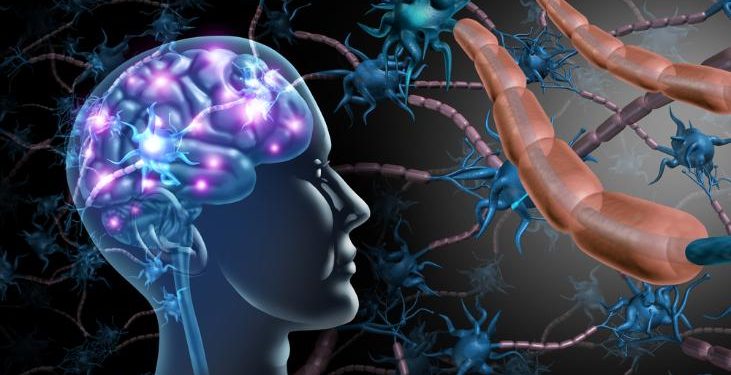Symptoms of multiple sclerosis (MS) vary from person to person. But there are a few signs that most people experience early on.
They include pain like a prickling sensation or something that feels like a toothache or earache on one side of the face called trigeminal neuralgia. Also, muscle spasms that can be painful and affect your posture.
Tingling or numbness in your hands or feet
Tingling or numbness in your hands or feet may be one of the first symptoms you experience with multiple sclerosis. It’s a sign of damage to your nerves that disrupts the flow of messages from your brain to the rest of your body. Tingling usually happens when the nervous system sends signals to move a certain muscle. It can also be caused by other problems like vitamin deficiencies, nerve compression or arthritis.
The pattern of tingling and how it spreads across your body can help your doctor determine what’s causing it. For example, you might have a deficiency in vitamins E, B-1, B-6 or B-12, which can lead to numbness in your feet and hands. Deficiencies in these vitamins can be corrected with a healthy diet or dietary supplements.
Other causes of tingling can include nerve damage from chemotherapy, infections and traumatic injuries or accidents. Some medications can also cause tingling, including some cancer treatments, pain relievers and antidepressants. If a medication is the culprit, your doctor may adjust your dosage or switch to another one.
Bladder and bowel issues are common symptoms of MS, including feeling the need to urinate frequently or having pain with urination (bladder spasms). Both males and females with MS may experience sexual problems like anorgasmia (delayed or absent orgasms) and erectile dysfunction.
Sleep troubles are a common MS symptom, with people who have MS having trouble falling or staying asleep. Some can also have a hard time waking up or wake up not feeling refreshed. Other common sleep issues include restless or disturbed sleep and an inability to fall back to sleep (nocturia). Some people with MS also have fatigue that makes it difficult to concentrate and stay awake.
Difficulty moving your arms or legs
Your doctor will check your symptoms and do some tests to see if they are related to MS. They will probably order an MRI scan of your brain and spine, as well as one or more blood tests. These will help them rule out other conditions that may be causing your problems.
Difficulty moving your arms or legs is a common sign of MS. It’s usually a sign of nerve damage called demyelination, and it often happens in the same areas as the tingling sensations, such as the face, arms, or legs. It’s also more likely to happen on only one side of the body.
Another common symptom of MS is speech and swallowing problems. This can mean having pauses between words or speaking with a slur. Some people also have trouble breathing, which can lead to pneumonia or other health problems.
Bladder and bowel problems are also common with MS, particularly in women. It’s not clear why, but the disease may make it harder to control your bladder and bowels.
Other symptoms can include having a hard time thinking clearly, or a problem with memory and attention. Usually these symptoms are mild and don’t interfere with your daily life.
If you have the first signs of multiple sclerosis, your doctor will usually refer you to a neurologist, who’s a healthcare provider who specializes in diseases that affect the nervous system. A neurologist will do a neurological exam and use various tests to diagnose your symptoms, such as an MRI or spinal tap (lumbar puncture). They might also recommend that you get regular exercise, which can help loosen stiff muscles. Getting enough sleep and finding ways to relax can also help with spasticity.
Difficulty swallowing or speaking
A person with MS might have difficulty swallowing, which can happen for different reasons. The problem might be mild or severe and get worse over time. Difficulty swallowing could result in slurred or nasal speech. It might also cause food or liquids to go down the windpipe instead of into the stomach, which can lead to choking and pneumonia. Difficulty swallowing might also make it hard to chew food or drink.
A rare symptom of MS is trigeminal neuralgia, which is a sharp, stabbing pain in the cheek or jaw. It usually comes and goes, but it can last for a few minutes or a few hours. It’s similar to dental pain and can be triggered by hot baths, cold drinks, or stress. Anticonvulsant medicines such as carbamazepine (Carbatrol, Tegretol) or lamotrigine (Lamictal) may help with the pain.
If you have MS, it’s important to tell your doctor about any symptoms that worry you, even if they don’t seem related to the disease. The earlier you get diagnosed, the better the chances of controlling your symptoms and preventing more serious problems.
Women are two to three times more likely than men to have relapsing-remitting MS, the type that has flare-ups of symptoms followed by periods without them (remission). People with this form are more likely to have trouble walking and thinking clearly and to experience bowel or bladder problems. They might also have more trouble with depression or anxiety than those with the primary-progressive type of MS, which is less common. This type of MS is slower to develop and tends to affect younger people. It has more to do with damage to the brain and spinal cord than with scarring of the myelin sheath, which protects nerve fibers.
Trouble seeing or hearing
When your fingers start tingling, your left eye starts blurring or you feel that you can’t think clearly, it might not occur to you that these are early signs of multiple sclerosis (MS). But they could be — especially if you are a woman under the age of 50. MS is three times more common in women than men.
Symptoms of MS vary from person to person, and can affect all parts of your body from the brain to your toes. But the earliest symptoms often include what’s called clinically isolated syndrome (CIS). This is when you develop neurologic symptoms that last at least 24 hours and don’t have another cause. It can also include what’s called demyelination which is when your immune system mistakenly attacks the healthy myelin sheaths that help nerve cells communicate with each other throughout your central nervous system. This damage can show up on an MRI scan as scars, lesions or plaques.
Your vision problems might be a sign of MS, and are usually the first symptom that people with MS experience. They may start with optic neuritis, which is an inflammation of your optic nerve. This can cause aching pain with your eyes, and often only in one eye. It can also lead to a cloudy or dim view, or a loss of color vision.
Other visual symptoms of MS can include long pauses between your words and slurred speech. Hearing problems might also develop. This can be caused by a problem with the nerves that carry sound signals from your ears to your brain, or it may be due to a lesion on the spinal cord.
If you have any of these symptoms, it’s important to see your doctor as soon as possible. Any new neurological symptoms should be evaluated by a neurologist to make sure there is no other problem that needs urgent treatment, such as a stroke.
Loss of coordination or balance
In MS, a loss of coordination or balance can be a sign of damage to your nerves in your brain or spinal cord. It’s often accompanied by other symptoms, such as a tremor or shaking that affects your body movements (ataxia). This can make you feel dizzy, or cause you to fall over more frequently or have trouble holding on to objects, such as when you’re trying to hold your drink or write.
Another common symptom is vision problems. These may begin as a blurred or cloudy vision, or you may experience pain when you move your eyes (ocular pain). These are signs of inflammation of the optic nerve, which can lead to blindness.
You may also have bladder or bowel problems, such as frequent urination or difficulty urinating (bladder retention), or spasms that cause you to wee more frequently than usual (nocturia). These are all signs of muscle or nerve damage in your spine and brain.
Sleep problems can also be a sign of MS, including trouble falling asleep or staying asleep or waking up feeling tired. This can be accompanied by pain or nocturia, and can also affect your thinking and memory.
The earlier you see your doctor about these early symptoms, the more likely you are to get diagnosed and treated sooner. However, it’s important to note that your symptoms will vary from person to person and that these early signs could also be caused by a pinched nerve, infection or some other health condition. For this reason, we use the term “women” to refer to females by their anatomic, chromosomal and hormonal biology present at birth rather than their gender identity.









